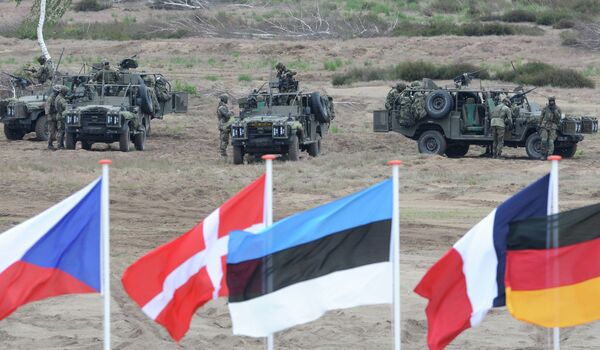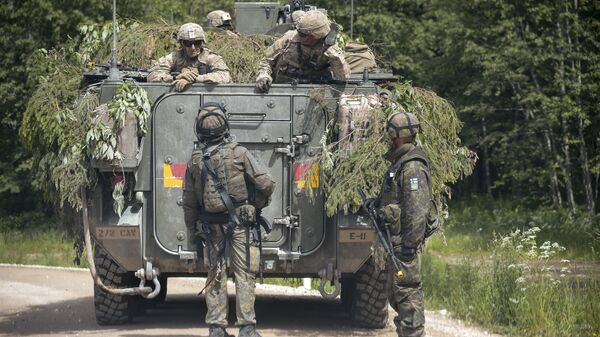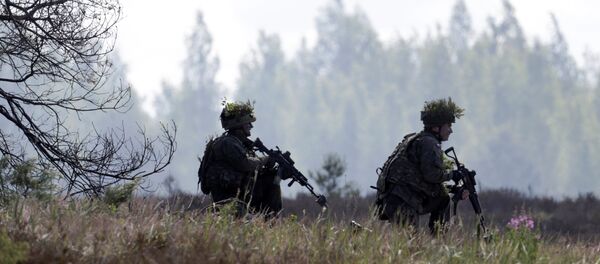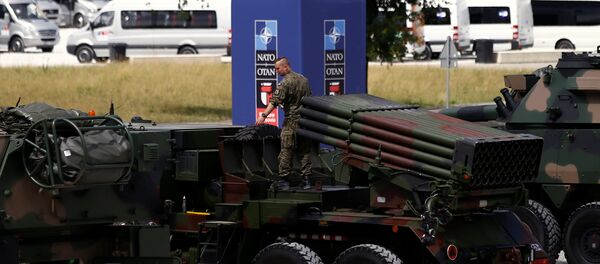"Resuming a dialogue between Russia and NATO is vital for European security," he added. "Italy has tried its best to encourage its partners to be reasonable."
This measure has been approved at the NATO's ongoing summit in Warsaw. Stephen Kinzer, a senior fellow at the Watson Institute for International Studies at Brown University, described the event as "a festival of chest-thumping" in an opinion piece for the Boston Globe.
BREAKING #NATOSummit news: framework nations announce enhanced forward presence battalion locations #AlliedStrong pic.twitter.com/mjfI0uGk3j
— US Mission to NATO (@USNATO) 8 июля 2016 г.
President of the Future of Freedom Foundation Jacob Hornberger recently described the bloc as a "Cold War-era dinosaur" that "produces crises in order to justify its own existence."
Kinzer echoed this sentiment, saying that the bloc is "not suited to the 21st century."
"Anti-Russia passion has seized Washington," he noted. NATO officials and military commanders "insist that their alliance is still vital because Russian aggression threatens Europe. The opposite is true. NATO has become America's instrument in escalating our dangerous conflict with Russia. We need less NATO, not more."

The analyst urged the White House to leave European security to the Europeans. It is they who need to come up with a system that will help to keep the continent safe and pay for it, not the United States. But this scenario will hardly unfold.
"NATO commanders and their political masters in Washington do not want to surrender control over European security. They fear Europeans would seek conciliation with Russia rather than follow the NATO model of in-your-face confrontation. That prospect is abhorrent to American generals, politicians, and defense contractors. By continuing to finance NATO, we buy the right to flash our swords on Russia's borders," he explained.



